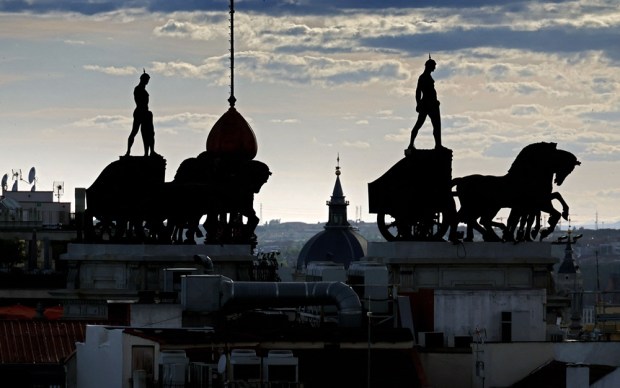A column like this cannot ignore the terrible events in the Middle East as Iraq falls apart from bloody-mindedness, Islamic fanaticism and lack of national identity, Syria is bombed into becoming one with Nineveh and Tyre, Lebanon remains on the edge and the roller coaster ride of Israel and Palestine roars ahead, with little sideshows like whether East Jerusalem is Occupied or just occupied. Instability in the Middle East is a major threat to peace; Australians think it is a long way from home, but the turmoil poses real threats to Australia’s shipping, trade and energy supplies, provides fertile ground for breeding international terrorism more hideous than al-Qa’eda and creates potential for personal tragedy, as misguided young Australian jihadists run off to join the civil war of their choice.
The only responsible reaction from Australia is to join with likeminded allies to stamp out the new terrorism, look to our defences and tighten our protective laws. But to understand the current crisis, you have to understand where it came from and this is where Australians are sadly equipped. It seems we gave up teaching real history in schools long ago. Had we continued it, we would know that Syria, Iraq, Lebanon and Jordan were always artificial states, with borders that had little to do with what actually existed on the ground and more to do with the dismemberment of the Ottoman Empire after the first world war. We would also know that Lawrence of Arabia created the basis for a long- term friendship with the Arab peoples and how this was undermined by the Sykes-Picot Agreement and the greed of the statesmen behind it.
What then can we do about instability in the Middle East? We can face up to the reality and allow new boundaries to emerge: clearly the days of the present Iraq are numbered; it should be allowed to dissolve and reform into new states for Kurds, Shiites and Sunnis. Syria cannot remain as it is and needs internal boundaries for new states or a federation. In Iraq and Syria, sadly, it seems the only way of keeping the warring sects apart. Israel and Palestine?
Australia can do a lot; we can set up a permanent mediation centre that disputing parties can use, at least to talk over these seemingly intractable issues; the same centre could also embrace threats to peace over islands in the South and East China seas. We also have a unique Australian strata title system that could be a blueprint for shared administration of Jerusalem, Baghdad and Damascus; if it can bring peace to a multicultural block of flats in St Kilda, Jerusalem should be a pushover. I know we don’t want to encourage the instability that comes from smaller states breaking away. I also know that Iran will remain a threat to peace. But everything else has been tried, things are getting worse and, well, are there any better ideas?
Nor would this column, being on the wavelength of its own era, be complete without some reference to the environment. So we should note the decision by Unesco to reject Australia’s bid to remove some forest in Tasmania from the world heritage list. I suppose there are two sides to every story on the merits of the proposal, but I was not amused by the unseemly haste with which our UN masters knocked back the request, ten minutes after our case was presented. The strange thing about these decisions is that they never seem to affect the one-party dictatorships and fashionable hipster states; can you imagine them passing a resolution condemning homophobia in Cuba?
Moreover, those countries that do all the finger-pointing and seem to control the UN bureaucracy are the worst offenders when it comes to human rights, discrimination, slavery, war crimes and the like. I have also been thinking recently that Australia does not use her weight and significance enough to get what she wants in international forums. A high-powered team of advocates (there are plenty of us in international arbitration) could have done better than getting a failed ten-minute hearing from Unesco; they could hardly have done worse. More importantly, we should use international bodies to mould opinion on issues that are difficult to get adopted domestically.
For instance, after the WorkChoices debacle, it is difficult to get a favourable hearing at home on proposals for even the slightest move towards free bargaining and flexible contracts of employment. But if you could move international opinion in that direction by debate, research and motions of support in the international labour organisation in Geneva, you could start a groundswell and these reforms could well become respectable and eventually accepted.
Got something to add? Join the discussion and comment below.
Get 10 issues for just $10
Subscribe to The Spectator Australia today for the next 10 magazine issues, plus full online access, for just $10.
You might disagree with half of it, but you’ll enjoy reading all of it. Try your first month for free, then just $2 a week for the remainder of your first year.














Comments
Don't miss out
Join the conversation with other Spectator Australia readers. Subscribe to leave a comment.
SUBSCRIBEAlready a subscriber? Log in